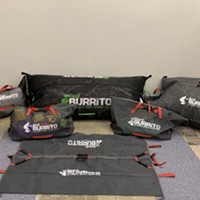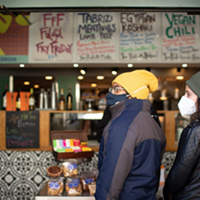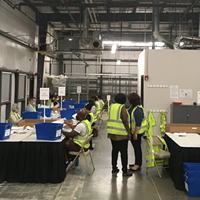Poverty is not a choice
The poor don't need more restrictions, they need our empathy
By Ailen ArreazaI'm trying to become a more peaceful parent. When I'm anxious, my kids are much less cooperative and our time together is a lot less pleasant. So I'm striving to be more patient, to stop rushing the boys all the time.
Mornings are the hardest time to practice peacefulness. They're a mad rush of making lunches, packing bags, looking under all the beds for wayward sneakers, combing unruly curls. If we can make it through the morning without anyone bursting into tears — even if the kids show up to school in mismatched socks and inside-out T-shirts — I consider it a huge success.
A few days ago, as I was calmly trying to coax my youngest child to brush his teeth and he insisted on bringing an entourage of stuffed animals to the bathroom to watch him do it, I suddenly felt incredibly relieved about the flexibilities our middle class lifestyle affords us. It was time to leave, and Pau's theatrical display of tooth-brushing was going to make my husband late for work.
Fortunately, we are not poor.
My husband Tony gets paid by the year, not by the hour. He doesn't have to punch a timecard each time he enters his office, so if he's a few minutes late, it's no big deal. Plus, we have cellphone plans with unlimited minutes and high-speed Internet access at home. So he could check email and make phone calls while Pau demonstrated his oral hygiene skills to an Elmo doll. And we have cars, so leaving the house a few minutes late didn't mean he was going to miss his bus and have to scramble to find another way to get to his workplace. Meanwhile, I could calmly explain to Pau the importance of brushing his teeth more quickly without resorting to yelling or forcing a toothbrush into his mouth.
That's the great thing about not being poor. It's not just that you don't have to worry about how you will afford to pay for things; it's the flexibility that comes with not having that worry.
And yet, there is a substantial group of Americans who believe that the poor have it way too easy in our country. A group of decidedly not poor people who think that those who receive welfare benefits are living the high life.
Two proposed bills, in Missouri and Kansas, get at the heart of this belief. In Missouri, state representative Rick Brattin proposed legislation that would prohibit food stamp recipients from purchasing steak and seafood. And in Kansas, Gov. Brownback could sign a bill that would bar welfare recipients from using their benefits on a long array of products and services, including movie theaters, swimming pools and tattoos.
No similar bills have been proposed in North Carolina — yet. But our state certainly isn't exempt from adopting policies that disproportionately harm the poor. For starters, this tax season, thousands of needy North Carolinians have seen their state refunds shrink or disappear due to the elimination of the earned income tax credit and deductions for medical expenses. Our state continually burdens the poor while giving tax breaks to corporations and the wealthy.
This is why laws like the ones proposed in Kansas and Missouri are problematic. It's not just because they are dehumanizing and present a huge double standard (after all, we don't place limits on what folk can do with their Social Security benefits or their federal home mortgage interest reductions). But because of the picture they paint of poverty in people's minds. They create the fantasy that poverty is a choice, that poor people have options. And they desensitize us to their true needs and struggles.
Today, I am not poor, but I used to be. Twenty years ago, my family immigrated to the United States from Cuba with absolutely nothing. During our first couple of years in America, my parents were fortunate to qualify for and receive food stamps and welfare benefits. I don't remember whether my mom ever bought steak or seafood with government dollars, but I do recall the tension and stress my parents were often under because of finances. Putting additional restrictions on what they could buy would have only magnified their anxiety.
The other day, I asked my 5-year-old son, Lucas, why he thought some people in our country didn't have enough to eat.
"Because they came out of their mommy's tummies and were poor," he said, matter-of-factly.
If a kindergartner can understand the involuntary nature of poverty, why is it so damn hard for our lawmakers to wrap their heads around it?
Speaking of...
Latest in Give Me Libertad
More by Ailen Arreaza
-
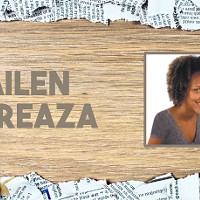
Is what's right for your child right for all children?
Feb 17, 2016 -

Plain red cups an affront to Christmas' beginnings
Nov 18, 2015 -
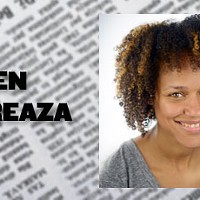
Kim Davis' false martyrdom
Sep 16, 2015 - More »
Calendar
-

Haw River Wine Tasting @ Carolina Beer Temple.
- Wed., April 24, 5-7 p.m.
-

Haw River Wine Tasting @ Carolina Beer Temple.
-

Mayo Clinic 8th Annual SKIN: Practical Dermatology for the Generalist @ The Ballantyne, a Luxury Collection Hotel, Charlotte
-

TRIVIA THURSDAYS!!! @ Elizabeth Parlour Room
-
NHRA Four-Wide Nationals - Friday @ Charlotte Motor Speedway
-
A Beginners Guide To Fishing 1
-
Sexercise with yoga ball dildos 1
The sexercise machine you would watch an hour-long infomercial on.
-
Hurricane Irene and climate change got you down? You're not alone.
Did climate change cause Hurricane Irene? Who cares? It's still a downer.

